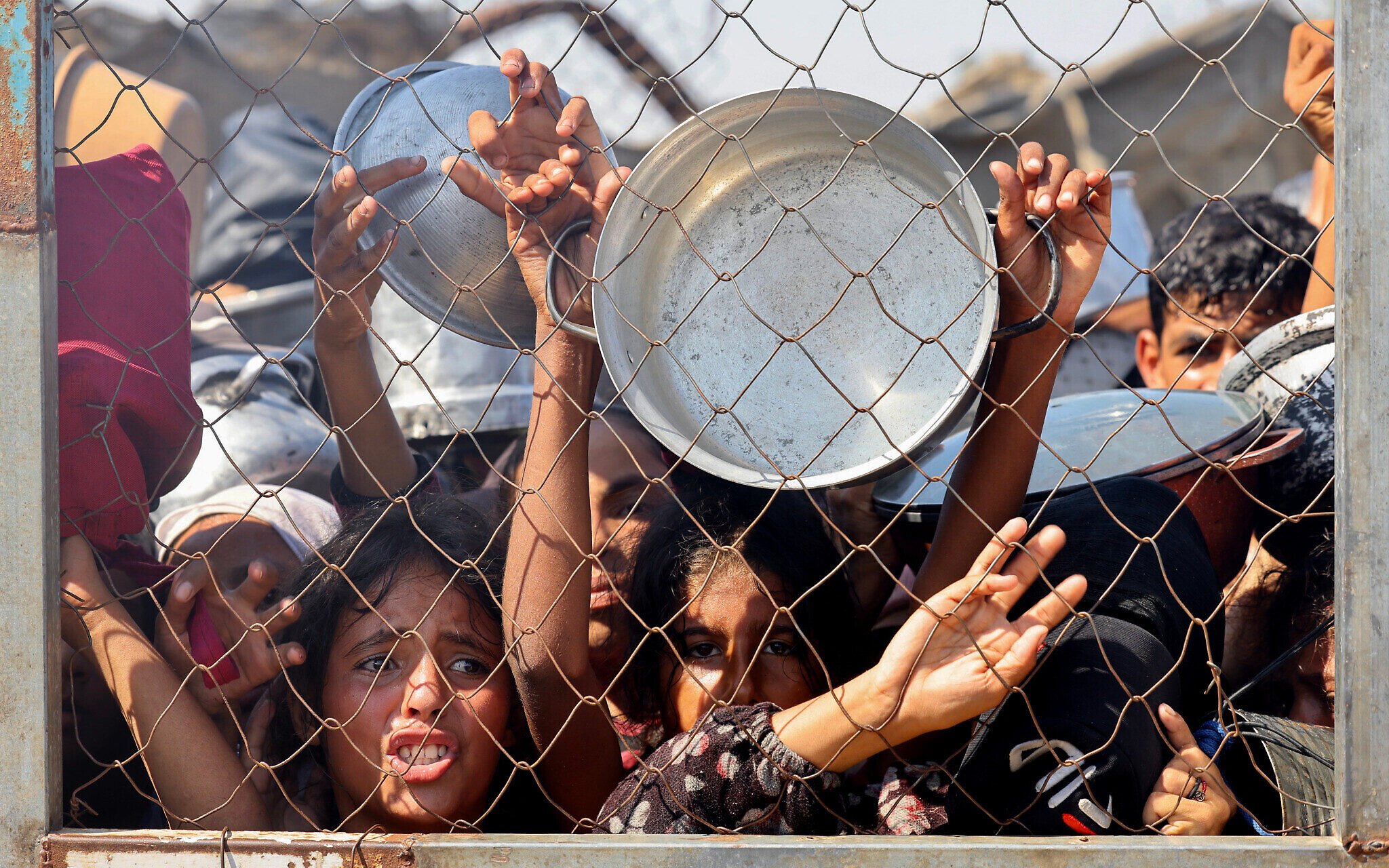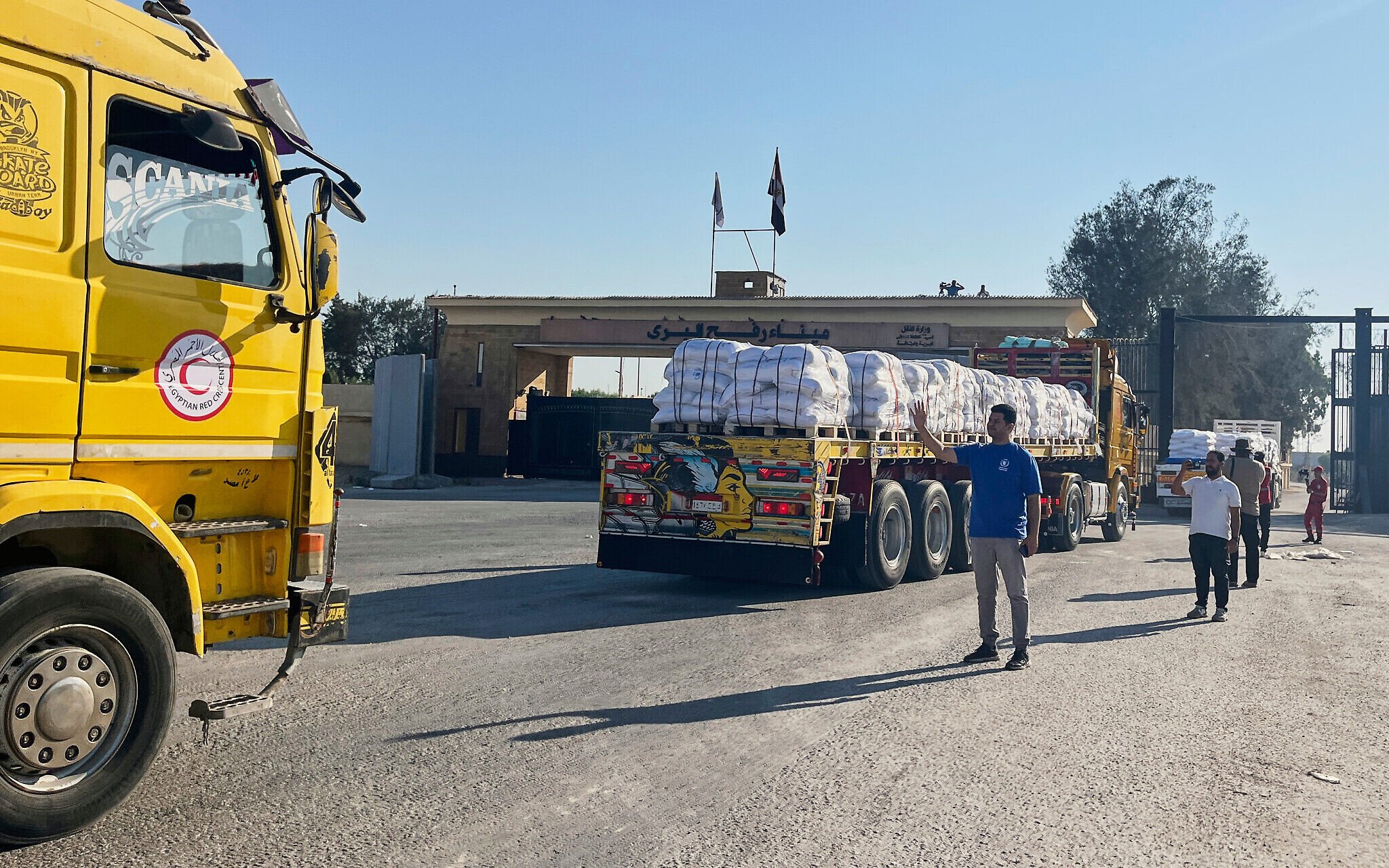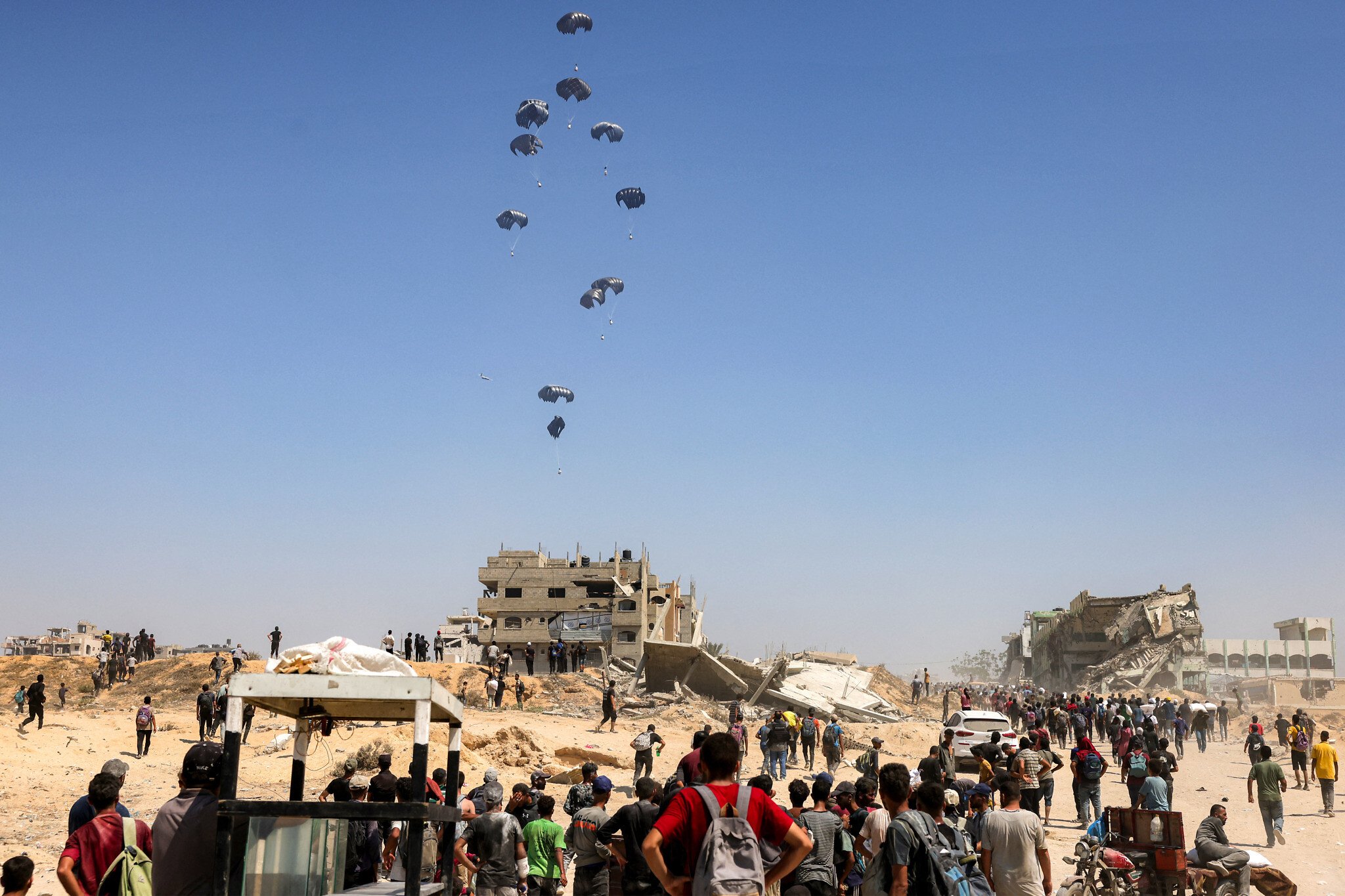The Israel Defense Forces announced Sunday that it will conduct daily “local tactical pauses of military activity” in densely populated areas of the Gaza Strip.
The pauses will take place from 10 a.m. till 8 p.m. in areas where the IDF is currently not operating with ground troops, including al-Mawasi, Deir al-Balah, and Gaza City, “every day until further notice,” the army said.
The announcement came as several Arab countries resumed humanitarian aid deliveries with Israel’s permission, amid mounting concerns of mass starvation in the enclave.
The move aimed to “increase the scope of humanitarian aid entering the Gaza Strip,” the army said, noting that the decision was coordinated with the United Nations and other international organizations.
Additionally, the IDF said that “secure routes” will be designated from 6 a.m. to 11 p.m. “to enable the safe passage of UN and humanitarian aid organization convoys delivering and distributing food and medicine to the population across the Gaza Strip.”
During a visit to the Ramon Air Force Base in the Negev Desert on Sunday, Prime Minister Benjamin Netanyahu pledged to “allow the entry of minimal humanitarian supplies” while claiming that Israel has “done this until now.”
He also accused the UN of lying about Israel: “It says we are not allowing humanitarian supplies to enter. It is allowed. There are secured convoys. There have been all along, but today it is official. There will be no more excuses. We will continue to fight, we will continue to act until we achieve all of our war goals — until complete victory.”
The UN called for the IDF to implement humanitarian pauses last week, claiming Israel had been hindering access to aid by failing to provide enough route alternatives for UN convoys. Daily pauses in military activity would allow “the scale up of humanitarian assistance,” the organization said.

Gaza’s Hamas-run health ministry said Friday that at least 56 people died of causes related to malnutrition in the previous three weeks, including 22 children. That was up from 10 children who died from such causes during the five previous months, according to the agency.
Israeli authorities have denied claims of widespread famine in the enclave, but acknowledged issues with food access, blaming shortages on a “lack of cooperation” by the UN and other international organizations.
Those claims were echoed Sunday by Prime Minister Benjamin Netanyahu, who said that that UN “says we are not allowing humanitarian supplies to enter. It is allowed. There are secured convoys. There have been all along, but today it is official. There will be no more excuses. We will continue to fight, we will continue to act until we achieve all of our war goals — until complete victory.”
Many Gazans expressed tentative relief about Sunday’s announcement, but said the fighting must end permanently.
“People are happy that large amounts of food aid will come into Gaza,” said Tamer Al-Burai, a business owner. “We hope today marks a first step in ending this war that burned everything up.”

National Security Minister Itamar Ben Gvir lambasted the aid decision, which he said was made without his involvement on Saturday by Netanyahu and defense officials.
“This is a capitulation to Hamas’s deceitful campaign,” he said in a statement, repeating his call to choke off all aid to Gaza, conquer the entire territory and encourage its Palestinian population to leave. He stopped short of threatening to quit the government.
Arab countries resume trucking, airdropping aid
Already on Sunday, Egyptian trucks carrying aid crossed into the Gaza Strip through the Kerem Shalom border crossing with Israel. The Egyptian Red Crescent said it was sending more than 100 trucks carrying over 1,200 metric tons of food aid to southern Gaza through the crossing.
Egypt had delivered aid during the early months of the war via the Rafah crossing between Gaza and Egypt but halted it after Israel took control of the crossing in May 2024.
During the ceasefire in January 2025, Egypt resumed sending aid through Kerem Shalom. But Sunday was the first time that Egypt delivered aid in that manner during active fighting.
The days leading up to Egypt’s aid resumption saw a growing online campaign criticizing its government for not reopening the Rafah crossing to allow aid in amid the severe humanitarian crisis in the Strip. Protests have also taken place in recent days outside Egyptian embassies in Lebanon, Syria, the UK, Denmark, Canada and other countries.
In a more modest undertaking, Jordan and the UAE airdropped 25 tons of aid into the Gaza Strip via three aircraft, Jordan’s official news agency announced Sunday.
Emirati Foreign Minister Abdullah bin Zayed said Saturday that his country would resume aerial aid deliveries, stating that the humanitarian situation in Gaza had reached “a critical and unprecedented stage.”

In early July, the European Union announced it had struck an agreement with Israel to reopen aid corridors from Jordan and Egypt, as part of a broader deal to increase humanitarian assistance to Gaza.
UAE representatives also began work on the construction of a water pipeline from a desalination facility in Egypt to the al-Mawasi area on the coast of the southern Gaza Strip, where hundreds of thousands of Palestinians are currently concentrated.
Israel’s Coordinator of Government Activities in the Territories (COGAT) unit announced the move Sunday, saying it had approved the Emirati initiative “intended to serve approximately 600,000 residents in the area.”
Construction is expected to last several weeks. The pipeline will operate independently of Israeli water infrastructure, the agency added.
IDF airdrops food for first time
The Egyptian aid deliveries came hours after the IDF, in the early morning, announced it had carried out an airdrop of seven pallets of food, “as part of the ongoing efforts to allow and facilitate the entry of aid into the Gaza Strip.”
It was the first time Israel had airdropped aid into Gaza since the current war began, after previously having only permitted other countries to carry out such operations.
Unusually, the statement was only issued in English, and wasn’t featured on the IDF’s X pages in either Hebrew or English.
A video circulated by media outlets in Gaza showed dozens of Palestinians scrambling for the airdropped food and celebrating the aid’s arrival, in footage whose exact location in the Strip was unclear.
Herzog calls on international agencies to ‘do their part’
President Isaac Herzog welcomed the decision to increase humanitarian aid to Gaza and called on United Nations bodies to “do their part.”
“Israel is doing its utmost to improve the flow of vital supplies through designated corridors, airdrops, and expanded humanitarian zones,” he wrote on X. “I call on UN agencies and international organizations working with @COGATonline to do their part and ensure that aid reaches those in need without delay — as Israel has demanded for some time.”
He called it “unacceptable that aid delivered to Gaza remains undistributed or is hijacked by Hamas, even as they falsely accuse Israel of blocking it.”
I welcome the major steps announced by the Israeli leadership and military to strengthen and upgrade the humanitarian response in Gaza — particularly the decision to implement humanitarian pauses to protect civilian lives and allow the safe delivery of aid.
In coordination with…
— יצחק הרצוג Isaac Herzog (@Isaac_Herzog) July 26, 2025
UN aid chief Tom Fletcher said that UN teams will step up efforts to feed Palestinians in Gaza during the humanitarian pauses, vowing on X to do the utmost “to reach as many starving people as we can in this window.”
The charity Oxfam’s regional policy chief Bushra Khalidi called the move a “welcome first step” but warned it could prove insufficient.
“Starvation won’t be solved by a few trucks or airdrops,” she said. “What’s needed is a real humanitarian response: ceasefire, full access, all crossings open, and a steady, large-scale flow of aid into Gaza.”
Shortly after the first pause began Sunday, officials in Gaza’s Hamas-run health ministry said an Israeli airstrike on an apartment in Gaza City killed a woman and her four children. The IDF had no immediate comment.

Health officials said at least 37 Palestinians were killed in separate strikes from late Saturday into Sunday, including 22 people seeking aid.
Four soldiers wounded in Rafah explosion
Meanwhile, an explosive device injured four IDF soldiers, including a senior commander, during operations in southern Gaza’s Rafah on Sunday, the military announced.
The commander of the Desert Reconnaissance Unit — commonly known as the Bedouin reconnaissance unit — who holds the rank of lieutenant colonel, was seriously wounded in the incident.
A reservist tracker in the unit was also seriously wounded, and two other officers were listed in moderate and light condition, according to the IDF.
The four troops were taken to hospitals and their families were notified, the army adds.
The IDF also announced the same day that its troops had demolished a 500-meter (1,640-foot) Hamas tunnel in northern Gaza’s Beit Hanoun.
The tunnel was located in recent days by reservists of the 646th Paratroopers Brigade, as part of efforts to uncover Hamas’s underground infrastructure in the area. Troops of the elite Yahalom combat engineering unit demolished it.
On Saturday, two IDF soldiers were killed and an officer moderately wounded by an explosive device in the southern Gaza Strip’s Khan Younis.
The slain soldiers were named as Cpt. Amir Saad, 22, from Yanuh-Jat and Sgt. Inon Nuriel Vana, 20, from Kiryat Tiv’on. Both were in the Golani Brigade’s reconnaissance unit.

